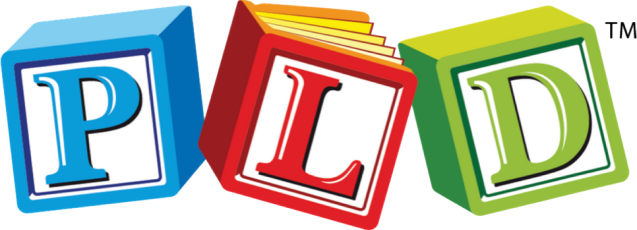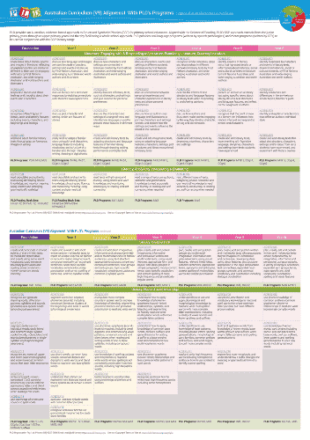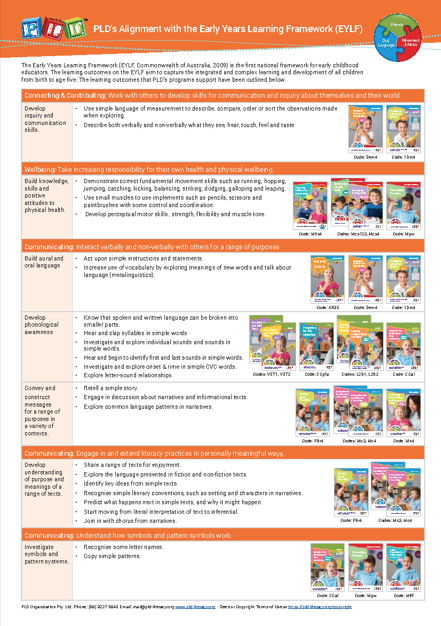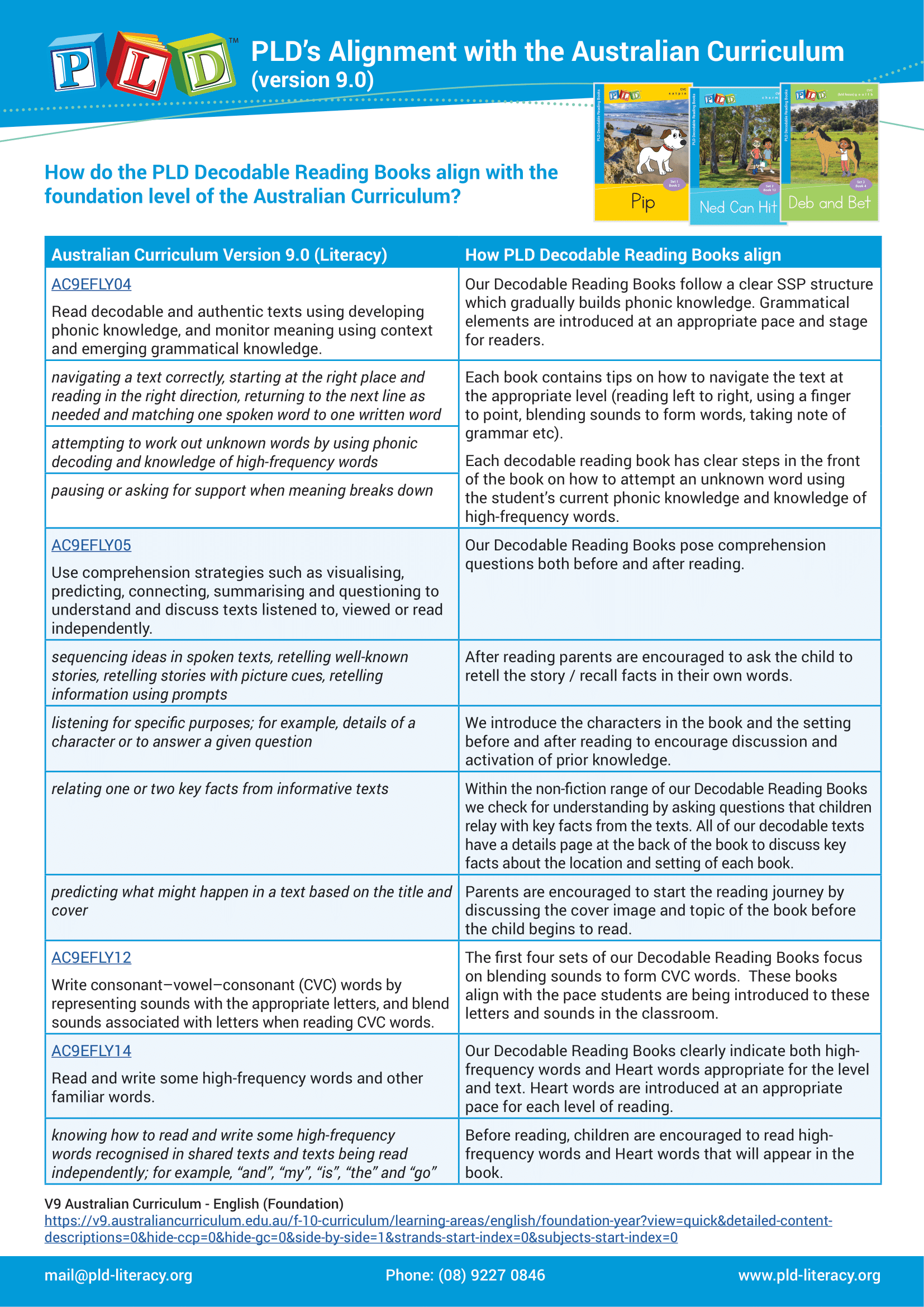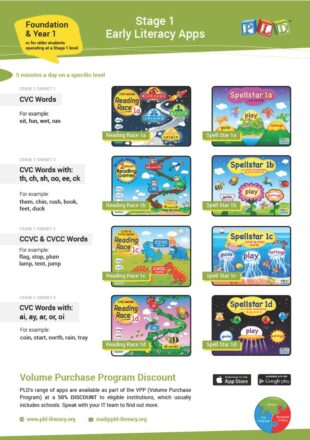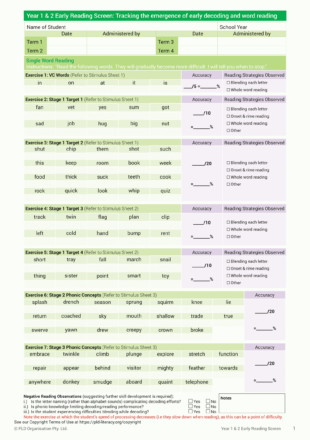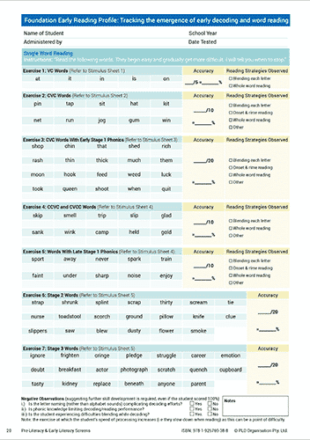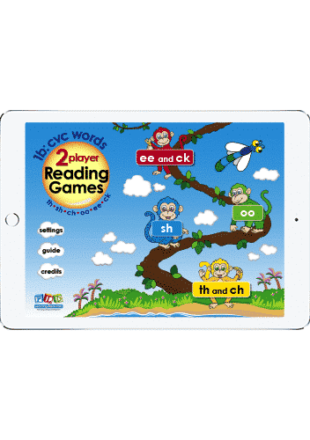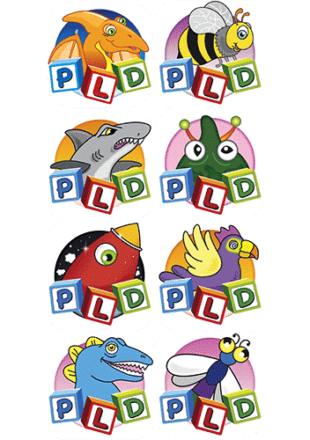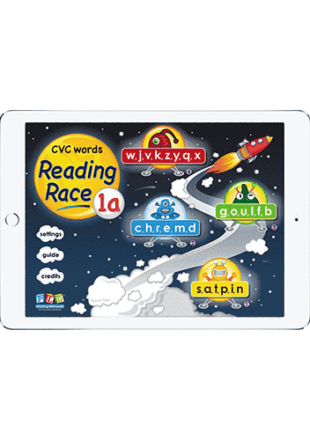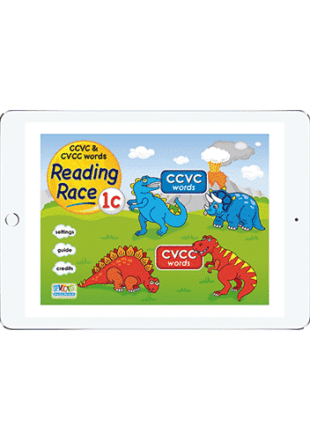-
PLD’s Alignment to the Australian National Curriculum
How does PLD align to the Australian National Curriculum?
In the attached download we have outlined where PLD applies to each year level, the content code and descriptor and the related PLD programs.
-
PLD’s Alignment with the Early Years Learning Framework
-
PLD's Decodable Reading Books Alignment with the Australian Curriculum
Two Player Reading 1d – ar, or, ai, ay, oi words
Pricing
- $5.99 for Apple single purchases in the App Store
- $2.99 for Apple Volume Purchases of 20+ apps in the App Store
This final app (from a set of four) has been designed for students learning to read words containing the phonic concepts: ar, or, ai, ay and oi. It is an excellent supplement to early reading books, flash cards and reading games.
The App is most suitable for the following age groups:
- Year 1 students as they embark on the journey of learning to read along with their peers.
- Older students who are still acquiring the ability to read words which contain the early phonic concepts ar, or, ai, ay and oi.
This two player game is designed to provide early readers with multiple opportunities:
- To rehearse their decoding and single word reading skills.
- To extend their decoding and reading skills by introducing early phonics concepts (ar, or, ai, ay, oi) in a gradual manner.
Particular consideration has been given to:
- Alphabet and phonic sounds rather than letter naming.
- Phonemic Awareness
- An ordered sequence of reading concepts
PARTICULAR CONSIDERATION HAS BEEN GIVEN TO THE FOLLOWING AREAS
1. Alphabet and phonic sounds rather than letter naming.
Children require alphabet and phonic knowledge in order to read and spell. However, rather than letter naming ability, alphabet sound and phonic sound knowledge is the more important skill.
In order to decode a word such as ‘frog’, a student must be able to recognise each of the four alphabet symbols and then verbalise the associated alphabet sounds: “f-r-o-g”.
No alphabet letter naming came into the process. For this reason these games only provide alphabet and phonic sound support.
2. Phonemic Awareness
Phonemic awareness refers to an individual’s ability
to focus on the phonemic or sound structure of words. Phonemic awareness is particularly important as it
has been shown by researchers to be an important prerequisite skill for reading and spelling.
When decoding (or reading a word) a child must blend sounds together. Using the example of the word ‘wink’, a student must be able to recognise and then verbalise each of the four alphabet sounds. The final stage involves blending or combining the sounds together.
3. An ordered sequence of reading concepts.
App 1c: Four sound words that contain double constants:
CCVC words – E.g. Frog, stop, club. CVCC words – E.g. Went, held, jump.
Other apps within the range include:
[Two Player]
- Two-Player Reading Race 1a (Stage 1 Target 1)
- Two-Player Reading Race 1b (Stage 1 Target 2)
- Two-Player Reading Race 1c (Stage 1 Target 3)
- Two-Player Reading Race 1d (Stage 1 Target 4)
[Single Player]
- Reading Race 1a (Stage 1 Target 1)
- Reading Race 1b (Stage 1 Target 2)
- Reading Race 1c (Stage 1 Target 3)
- Reading Race 1d (Stage 1 Target 4)
[Single Player Stage 1 Spelling Apps]
- Spell Star 1a – cvc words – (Stage 1 Target 1)
- Spell Star 1b – sh, ch, th, oo, ee, ck words (Stage 1 Target 2)
- Spell Star 1c – ccvc and cvcc words (Stage 1 Target 3)
- Spell Star 1d – ar, or, ai, ay, oi words (Stage 1 Target 4)
[App Bundles]
Books: PLD’s books may only be used by the Authorised Purchaser, and the Authorised Purchaser’s students, and only in conjunction with classes taken by the Authorised Purchaser. PLD’s books may be photocopied up to 10% per year for use only by the Authorised Purchaser. The Authorised Purchaser is defined as the original purchaser of the PLD materials.
eBooks: PLD’s eBooks may only be used by the Authorised Purchaser, and the Authorised Purchaser’s students, and only in conjunction with classes taken by the Authorised Purchaser. The Authorised Purchaser is defined as the original purchaser of the PLD eBook. Under the ‘Statutory Educational Licence’ the authorised purchaser can:
- View the eBook as a whole or in part
- Copy the eBook to their personal drive or locally on their device
- Display the eBook on your Interactive Whiteboard, projector or smart TV, for the purpose of teaching the students in their own classroom
- Photocopy or print up to 10% of the eBook per year, for use with the students in their classroom(s).
For copyright purposes, every page of the PLD eBooks will be stamped with the name & email address provided by the purchaser at the time of order. PLD ebooks belong solely to the purchaser and may not be shared with colleagues, parents or anyone else. PLD eBooks must not be uploaded to school servers, intranets or online platforms. Schools wishing to licence PLD eBooks can contact us HERE.
School Licences: A School Licence is a multi-user subscription to a PLD resource, such as a book or program, in a digital and printable format that is accessible via the ‘My Subscription’ section of the PLD website. A School Licence is valid for 12 months from the date of purchase and can be used by an unlimited number of teachers within a school. When bought under a School Licence:
- Resources are accessible in digital, flipbook format, which teachers can access from anywhere, at any time, on any device via the PLD website.
- The resources can be used by any amount of teachers in that school.
- Multiple teachers can access the resources simultaneously.
- The resource is available to print, subject to the standard 10% per year limitation as per Australian Copyright law.
- Updated versions of resources will be automatically accessible to users with a current licence for free, ensuring all users have access to the latest versions of resources.
- Resources are stored centrally and accessed via a secure login account on the PLD website. Thus, all currently subscription resources are accessible in the one convenient place, making resources extremely easy to find. Moreso, the school licence offering eradicates the frustration of lost or misplaced resources and programs which happens often with hardback books.
Additional information can be accessed via the following links:
Books: https://support.pld-literacy.org/en-au/article/plds-printed-electronic-materials-how-can-they-be-used-can-i-share-them-with-a-friendcolleague-9lk4y/
eBooks: https://support.pld-literacy.org/en-au/article/the-pld-ebooks-how-can-they-be-used-what-is-the-copyright-policy-ptfya8/
PLD’s Copyright Policy: https://support.pld-literacy.org/en-au/article/copyright-and-terms-of-use-of-pld-literacy-15tkcer/

